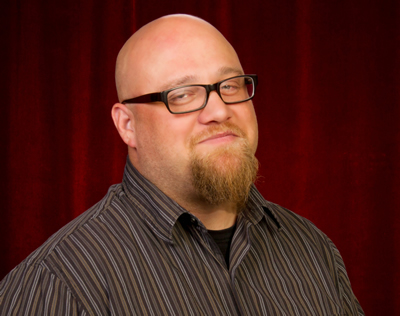I work in Lower Downtown Denver (LoDo). Denver in general has seen a massive influx of people in the past few years–far too much for the city’s infrastructure to handle (according to estimates, Colorado in general has seen a population growth of about 100,000 people each year for the past couple of years).
As a Denver native, I’ve got no issue with people moving here–I feel proud to live in such a booming city. But make no mistake; the population surge does come at a severe cost. The impact on everything from traffic to healthcare has left many people in tough situations—particularly those seeking help with mental health.
I go for a walk just about every day when the weather’s tolerable. Many people think of Colorado as a frigid, snowy, winter wonderland, but that really only applies to the mountains. Denver’s weather is deceptively mild, which has been part of its appeal to transplants.
In my time walking around LoDo, I’ve encountered many homeless people, or people who are otherwise in need of help. This in itself isn’t a problem, but it seems like there are a lot more people in need of help in this city lately.
One person’s story in particular struck me.
Jim’s Story
Jim was fairly new to the city, like so many people in Denver these days. He was sober, he was coherent, and he was disabled, physically. To be clear, I’m not gullible; I tend to be leery of sob stories as they’ve historically been a way for people to guilt me into coughing up a few bucks. But I believed Jim 100%. His story was clear, honest and compelling. This was scary to me because in him I saw myself—or what could’ve become of me without the amazing support system I have today.
Jim, a paranoid schizophrenic, was looking for $35. This seems like a lot of money to ask of a random stranger on the street, and his reasoning was oddly specific. He wanted to stay one night in a nearby hostel, where he could have his own bed and wash his laundry. For him, the homeless shelters aren’t an ideal sleeping situation (or for anyone?) as his schizophrenia makes it hard for other people to be around him. And the schizophrenia certainly makes it hard for him to be around others, especially in tight quarters.
Jim seemed shocked that I had actually stopped on the street to listen to his story.
“Nobody gives me the time of day. They all just think I’m like everyone else on the street out here…looking for money for weed or booze,” Jim told me as he shook my hand.
According to the story he told me, Jim had been waiting for disability to approve his claim. But most striking to me, was that he was waiting for Medicaid to find him some kind of help for his schizophrenia.
To provide some background, Medicaid is a tax-funded, government-regulated medical assistance program. At its core, it is intended to help those who don’t have the financial means for private health insurance.
Unfortunately, as more Coloradoans than ever quality for Medicaid, there has been an intense strain put on the system. What really hit home for me about Jim’s story, is that even though he was a paranoid schizophrenic wandering the streets without medication, it would be SIX MONTHS to be seen and evaluated for medication.
In most situations, this would be a red flag—a sure-fire way to know that the story he was telling wasn’t true. But sadly, my personal experience with the system gave me the unfortunate background to know just how true this is.
My Story
It was one year ago, almost to the day, that I entered a nearby hospital after having a debilitating panic attack.
I have been diagnosed with panic disorder and generalized anxiety disorder, and have been dealing with it for a few years. Many people who haven’t experienced this affliction don’t understand what you go through. To most people, I suspect a “panic attack” is perceived as an event that happens with no grave consequences, and you go back to living your life like a normal person when it’s over.
Please know that this is far from the case.
When I was laid off from my job in August of 2015, I enrolled in the Medicaid program. I was also told that it would be six months before I could see a psychiatrist to be evaluated for medicine. My regular doctors didn’t accept Medicaid, so I had to change doctors. And many of the doctors who accept Medicaid have a strict policy about prescribing any kind of anxiety or pain medication.
So it should go without saying, but six months is an impossible amount of time to go without help when you’re suffering the way that I was suffering, or the way that Jim was probably suffering when I encountered him.
So without a psychiatrist to see, and without a doctor to prescribe medication, when I had a massive panic attack, I ended up in the emergency room. I have learned many helpful techniques in dealing with panic disorder, but once you’re in the grip of a panic attack, you become irrational and no amount of cognitive-behavioral therapy can snap you out of it.
My blood pressure was through the roof, and I was alone at the time, so I had to call paramedics to pick me up. I have never felt so alone and so panicked in my life.
In the hospital, they tried to give me Ativan. I let them know that Ativan doesn’t work well with my body chemistry and asked for Xanax. They told me that Ativan is the same exact thing, and proceeded to inject me with a full dose into an IV. Ativan IS a similar drug to Xanax, and is considered the same class of drug. But what the late-night nurse and doctor of this hospital failed to recognize, is that Ativan does not work with my particular brain chemistry, despite my many protests.
As I suspected, the Ativan didn’t work; in fact in only agitated me further. I can never quite explain the terror one feels when they’re in this state of mind, but I wouldn’t wish it on anyone.
Worst of all, no one there cared or even tried to understand.
Their next response to my anxiety was to shoot me full of the drug Haldol—a very strong anti-psychotic medication that’s supposed to sedate schizophrenic patients. I didn’t know what it was at the time, and it did not sedate me whatsoever. In fact, Haldol, injected into your blood stream, can actually take over a week to reach peak effects in your system.
I was exhausted, anxious, lonely and detached. Eventually I had to pretend that I was sleeping so they would leave me alone. With my vital signs “stable” and because Medicaid wouldn’t allow for any other options, they released me immediately. They did not ask if I had someone to pick me up. They did not ask if I had a place to go. To this day I’m still trying to wrap my head around the abysmal care I received that night.
Over the next month, I endured the most horrific psychological episodes I’ve ever endured in my life. Had it not been for my children, my family and a general strong will to live, I know I would have ended my life. No person should ever have to endure that kind of hell in their life, ever. I spent more days than I’d like to admit rocking back and forth on my mother’s couch saying “I can’t live like this. I can’t live like this and I don’t want to live like this anymore.”
I called an inpatient mental health program and kept looking for answers and help. But unfortunately, unless you’re a drug addict, there’s no immediate inpatient help from Medicaid available.
This was the most serious, dark, painful, hurtful and frightening experience of my life. It was a thousand times more frightening than waiting for a cancer biopsy, and a thousand times darker than the death of a loved one—both of which I’ve experienced.
Don’t Give Up
So when I ran into Jim during my walk at work, I was taken right back to that same place, almost one year ago today. I could be Jim. I could be worse off than Jim. I could have taken my life like so many people with mental illness before me.
But it’s a year later. I was able to finally see a psychiatrist because I kept looking for answers in different counties and different cities. I now have a job, am medicated and well-controlled.
There are still hard and scary moments for sure, and there always will be. But one year ago, it was almost impossible for me to imagine myself in this position today.
If you’re struggling, there is help. It’s not always easy to find, but there is always help. To this day I carry around a card that has a list of nearby mental health crisis centers. They exist! Find them! Find some kind of support. You’re never as alone in this as you think you are. There are others who have been through what you’re going through. There are plenty who can help, despite the bogged-down Medicaid system. Keep trying. Don’t give up.
When life is the darkest, and when your mind is playing the cruelest kinds of tricks on you, remember that other people know from experience how hard it can be to see the light at the end of the tunnel. Just keep trying new things. Always keep moving forward, no matter how small the steps have to be.
Please don’t give up.
Image credit: Pexels
 Born and raised in Denver, Colo., Seth Garland has been a professional writer for almost a decade, with particular interest in sociology and the arts. Graduating from the University of Colorado Denver with a degree in English Writing, Seth has had extensive experience as a writer in marketing, education and training, mental health and video production.
Born and raised in Denver, Colo., Seth Garland has been a professional writer for almost a decade, with particular interest in sociology and the arts. Graduating from the University of Colorado Denver with a degree in English Writing, Seth has had extensive experience as a writer in marketing, education and training, mental health and video production.
In his spare time, he tries to keep up with his three teenage daughters and hangs out with his family and fiancée, and can be seen playing the saxophone in Denver’s finest hole-in-the-wall jazz clubs.


Nina
That was an amazing article and of course I wish you nothing but continued good health and success! Knowing you are loved and cared for so deeply by your family is definetly a help for anyone!
You too
I felt every word you wrote about *your* story. It’s my story too.
Seth
Best of luck to you – an important part of getting through this supremely alienating feeling is knowing it’s not as unusual as it feels.
Seth
Support is very important and I’ve been very fortunate to have it. But, it’s also important to know you can do it on your own—the important thing is just to keep moving forward and trying new things.
Muzammal
I’m happy you found a path to a much more stable existence, Seth. Your story is moving to me in communicating that there is always hope. It is about those experiencing crippling anxiety, but I also take meaning from your story beyond.
We can come across so many obstacles in areas of our life (I’m sorry to hear about what you faced in the hospital), and yet the story shouldn’t end there. Hope can always be present.
Blessings.
Seth Garland
Thank you for the kind words. Best,
Seth